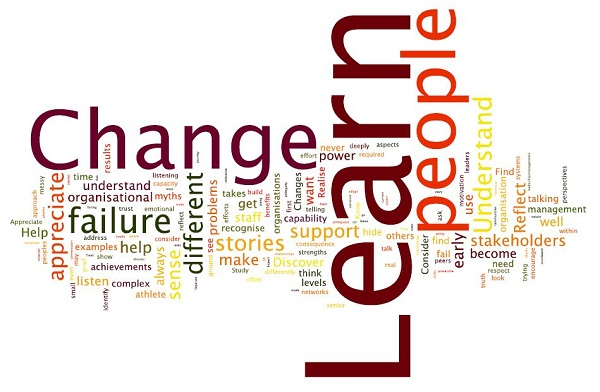ATD Blog
Make Learning an Empowering Path Through Change
Wed Oct 08 2014

Organizations are encountering more change. In fact, six out of 10 respondents to the recent ATD and i4cp research collaborative, Change Agents: The Role of Organizational Learning in Change Management report that their companies face three or more major changes per year; one in four said the number is twice that. Forty-eight percent characterize the pace of change as faster and increasingly unpredictable.
Unfortunately, change initiatives in organizations worldwide fail every day. Seventy percent is the often-cited figure quantifying the extent of those crashes (Leonard and Coltea 2013). Towers Watson (2013) bumped the figure up to 75 percent when the ability to sustain change was factored in.
The situation may be growing worse for organizations, as many face more change initiatives coming faster and more unpredictably. The new research by ATD and i4cp found that only 17 percent of business and learning professionals surveyed rate their organizations highly effective in managing change initiatives. It is clear that the learning function’s expertise and involvement are needed to prepare executives and their workforces to better navigate the ongoing volatility that characterizes the business environment.
Better change training is a learning function objective
The notion of improving know-how, performance, and outcomes is a core driver of a learning professional’s career. When that improvement needs to occur within the learning function itself, effective strategies are the order of the day. Participants in the Study readily affirmed their desire to drive better change results, in part, by upping their effectiveness in providing change management training.
A substantial proportion of survey respondents—18 percent—acknowledged that they didn’t know what strategies to attempt in their efforts to improve change training effectiveness. Those who noted specific tactics said they should work on change management expertise within the learning function. Thirty percent of respondents made learning staff development the favored approach. Trying new delivery methods for change training ranked second, with more participation by senior leaders the third-place option.
Indeed, learning professionals who participated in the Study agreed that the role of change agent offered their functions a key opportunity to make innovative and effective training the lifeblood of organizational change initiatives.
The learning director in a U.S.-based nonprofit credited “adequate preparation and education for all stakeholders” with providing motivation and support for change in his organization. An HR leader in the oil industry added that learning must “provide \[those stakeholders\] with the tools and ideologies to accept and embrace change.”
“Adequate training to make the transition easier for employees reduces fear of change,” observed one survey respondent, and a learning technology manager advised that training should “provide clear guidance and milestones to help navigate the change process.”
Likewise, the global training manager in a major manufacturing firm condensed his philosophy on change management training to this alliterative pronouncement: “Proper preparation prevents poor performances.”
Recommendations for learning professionals
The Study featured an index based on the practices of organizations that are highly effective in change management. Their greater change initiative successes inform the following recommendations:
Make the CEO ultimately accountable for achieving change outcomes, but consider designating a change management team as well.
Extend change management training to everyone as budgets and other resources permit.
Look internally and externally for best practices in change training.
Measure the effectiveness of change training.
Design learning programs to sustain lasting change.
About the Study
Change Agents: The Role of Organizational Learning in Change Management__ aims to provide learning professionals with insight into the learning practices most likely to make a positive difference in an organization’s change-related capabilities. The Study began with a survey fielded in March 2014. The 765 business and learning professionals who responded represented organizations across dozens of industries, and nearly two-thirds had workforces of 1,000 or more. Forty-eight percent were U.S. organizations, with the remainder being global and multinational.
The complete report is available to ATD members for US$199; nonmembers US$499. A white paper based on the Study is available for free to ATD members.
Learn how to facilitate change more effectively in your organizations at the Change Management Certificate. Available course dates are November 5-6, 2014, in Phoenix, Arizona, or December 5-6, 2014 in New York, New York. The online course offering meets weekly November 5 through December 17.
